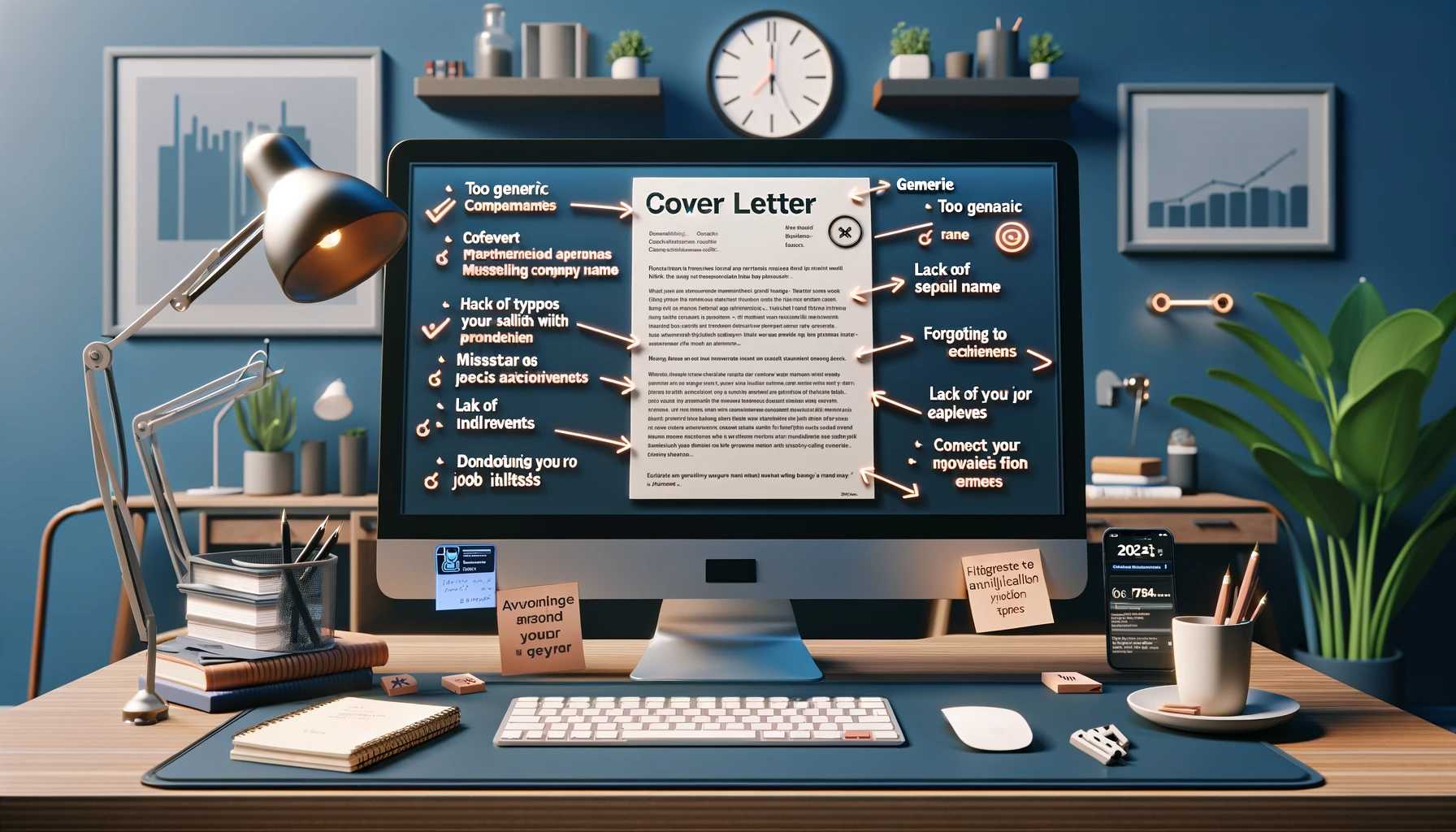Cover Letter: Avoiding Common Mistakes in 2024
In the competitive job market of 2024, a well-crafted cover letter can be your ticket to landing an interview and securing your dream job. However, many candidates still fall into common pitfalls that can undermine the effectiveness of their cover letters. In this article, we'll explore some of the most common cover letter mistakes and provide tips on how to avoid them, empowering you to create a compelling cover letter that makes a strong impression on hiring managers.
1. Using a Generic Template:
One of the most common mistakes job seekers make is using a generic cover letter template that lacks personalization and fails to address the specific requirements of the job. Hiring managers can easily spot a cookie-cutter cover letter, and it sends the message that you haven't taken the time to tailor your application to the position. Instead, take the time to research the company and the role, and customize your cover letter to highlight how your skills and experience align with the job requirements.
Avoidance Tip: Personalize your cover letter by addressing it to the hiring manager by name, if possible. Use the job description as a guide to highlight your relevant qualifications and explain how your experience makes you an ideal candidate for the position.
2. Repeating Your Resume:
Another common mistake is simply restating information from your resume in your cover letter. Your cover letter should complement your resume, not duplicate it. Instead of regurgitating your work history, use your cover letter to tell a compelling story about your career journey, highlighting key achievements and experiences that demonstrate your qualifications and fit for the role.
Avoidance Tip: Choose one or two key accomplishments or experiences from your resume to expand upon in your cover letter. Use specific examples to illustrate your skills and contributions, and explain how they make you uniquely qualified for the position.
3. Focusing on What You Want, Not What You Can Offer:
Many candidates make the mistake of focusing too much on what they want from the job, rather than what they can offer the employer. While it's important to convey your enthusiasm for the role, hiring managers are ultimately looking for candidates who can add value to their organization. Your cover letter should emphasize how your skills, experience, and passion align with the company's needs and contribute to its success.
Avoidance Tip: Shift the focus of your cover letter from yourself to the employer. Research the company's mission, values, and goals, and tailor your cover letter to demonstrate how you can help the company achieve its objectives. Highlight specific ways you can contribute to the team and make a positive impact on the organization.
4. Overlooking Typos and Grammatical Errors:
Nothing undermines your credibility faster than typos and grammatical errors in your cover letter. Yet, this is a common mistake that many job seekers make, often due to rushing to submit their application or neglecting to proofread carefully. Typos and grammatical errors suggest a lack of attention to detail and can cause hiring managers to question your professionalism and suitability for the role.
Avoidance Tip: Take the time to proofread your cover letter carefully before submitting it. Use spelling and grammar checkers, but also consider asking a trusted friend or colleague to review your cover letter for errors and provide feedback. Reading your cover letter aloud can also help you catch any awkward phrasing or mistakes.
5. Being Too Formal or Too Informal:
Striking the right tone in your cover letter can be challenging. Some candidates err on the side of being overly formal, using stilted language and jargon that can come across as robotic or insincere. Others swing too far in the other direction, adopting a casual or overly familiar tone that can be perceived as unprofessional. It's important to find the right balance and tailor your tone to the company culture and industry norms.
Avoidance Tip: Research the company culture and industry standards to gauge the appropriate tone for your cover letter. Aim for a tone that is professional, yet conversational, and reflects your personality and enthusiasm for the role. Use language that is clear, concise, and engaging, and avoid jargon or overly formal expressions.
6. Not Following Instructions:
Finally, one of the most common cover letter mistakes is failing to follow the application instructions provided by the employer. Whether it's submitting your cover letter in a specific format, including certain information, or addressing specific questions, failing to follow instructions can signal to the employer that you're not detail-oriented or that you lack respect for their hiring process.
Avoidance Tip: Carefully review the job posting and any instructions provided by the employer, and ensure that you follow them to the letter. Pay attention to details such as formatting requirements, submission deadlines, and any additional documents or information requested. Demonstrating that you can follow instructions shows that you're serious about the position and that you respect the employer's time and process.
In conclusion, avoiding these common cover letter mistakes can significantly improve the effectiveness of your job applications and increase your chances of landing interviews and job offers. By personalizing your cover letter, focusing on your contributions, proofreading carefully, striking the right tone, and following instructions, you can create a compelling cover letter that showcases your qualifications and makes a strong impression on hiring managers. With these tips in mind, you'll be well-equipped to navigate the competitive job market of 2024 and advance your career aspirations with confidence and success.









